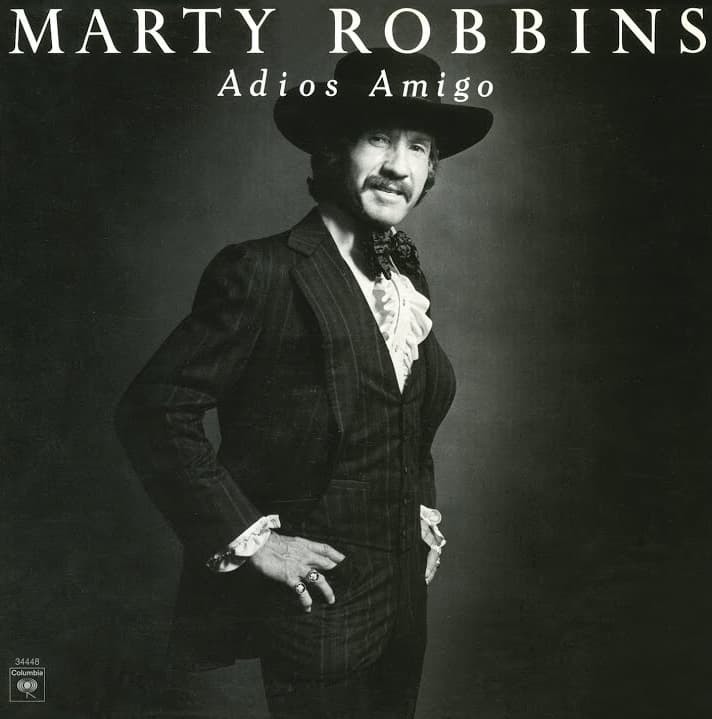
Marty Robbins – 18 Yellow Roses: A Father’s Quiet Heartbreak Told in Song
By the time Marty Robbins recorded “18 Yellow Roses” for his 1977 album Adios Amigo, he was already a towering figure in country music. Known for his gunfighter ballads like “El Paso” and heartfelt classics such as “Devil Woman”, Robbins had a gift for weaving stories that touched deeply on human emotion. The Adios Amigo album itself was a commercial success, reaching No. 5 on Billboard’s Top Country Albums chart and holding its place there for 18 weeks. While the title track and “I Don’t Know Why (I Just Do)” became Top 10 singles, it was “18 Yellow Roses”—a cover of a Bobby Darin song from 1963—that offered listeners one of the most poignant emotional moments on the record.
The story behind “18 Yellow Roses” is both tender and tragic. At its heart, it is not a love song in the romantic sense, but rather a father’s lament. The lyrics tell of a man who sends eighteen yellow roses to his daughter, knowing she is about to run away with a man he does not approve of. Each rose becomes a silent messenger, carrying his love, his regret, and his silent plea for her happiness—even if it breaks his own heart. The number itself, eighteen, symbolizes not only the girl’s youth but also the father’s bittersweet realization that she is stepping into adulthood, out of his protection.
When Bobby Darin first released the song in 1963, it reached No. 10 on the Billboard Hot 100, but in Robbins’ hands, the ballad takes on a different character. His voice—by then older, seasoned, and filled with the weight of years—carries a deep ache that Darin’s lighter delivery did not. Robbins doesn’t just sing the words; he inhabits the sorrow of a father letting go. For country music fans in the late 1970s, many of whom were parents themselves, the song must have struck a raw chord.
Musically, Robbins’ version is arranged with the elegance typical of his late-1970s recordings. The production is gentle, with strings and soft backing that allow his voice to remain the centerpiece. What makes it resonate is not dramatic instrumentation but the quiet dignity in the way he delivers every line. It feels less like a performance and more like a private letter spoken aloud.
Listening to “18 Yellow Roses” today, one cannot help but be reminded of the timeless struggle between generations: the parent’s instinct to protect, and the child’s desire for freedom. Robbins, always a master storyteller, gives us a song that is both deeply personal and universally understood. For older listeners, it is almost impossible not to recall the day when a child left home, when words of advice went unheeded, and when love had to be expressed in silence rather than control.
Though it was never released as a charting single for Robbins, “18 Yellow Roses” remains one of those gems hidden inside his vast catalog—proof of his ability to take another artist’s song and breathe into it a new, more sorrowful life. It is not just a song about roses; it is about love in its purest, most selfless form—the kind that hurts, yet never fades.